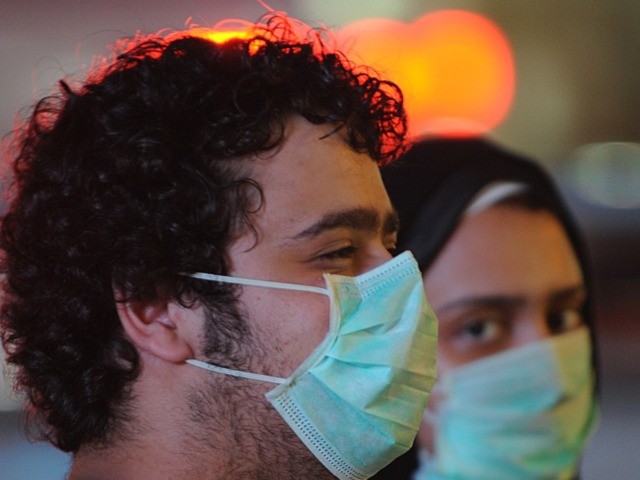The government of Saudi Arabia banned travel to the holiest cities in Islam, Mecca and Medina, on Thursday and banned all tourist visas to people from nations affected by the Chinese coronavirus.
Saudi Arabia has expressed concern over the potential of a coronavirus outbreak within its borders as it has become surrounded by Middle Eastern countries with confirmed cases. Egypt, Oman, Bahrain, United Arab Emirates (UAE), Iran, and Iraq have all documented cases. Iran’s situation is the most alarming, as the country has not publicly confirmed a “patient zero” – the first person in the country to have it – and not traced the outbreak’s origin, so it is spreading in public uncontrolled.
Saudi Arabia attracts millions of Muslim tourists and pilgrims as it is home to the religion’s holiest sites. On Thursday, it announced that it had limited entry of Muslims for the Umrah, a religious pilgrimage to the holy sites that can take place at any time of year. It is separate from the mandatory pilgrimage, the Hajj, which can only take place during the last month of the Islamic calendar.
Al-Arabiya, a Saudi outlet, listed 20 countries whose citizens were banned from entering the country, including Taiwan. Hong Kong and Macau, autonomous Chinese communities, joined China on the list. Among the other nations listed were Indonesia, Malaysia, Italy, Iran, Japan, Singapore, and Afghanistan.
“The extraordinary decision by Saudi Arabia prevents foreigners from reaching the holy city of Mecca and the Kaaba, the cube-shaped structure the world’s 1.8 billion Muslims pray towards five times a day. It also said travel was suspended to Prophet Muhammad’s mosque in Medina,” al-Arabiya noted. The publication noted that Mecca had been home to several disease outbreaks throughout history, as so many people from around the world assembled there annually.
“The earliest recorded outbreak came in 632 as pilgrims fought off malaria. A cholera outbreak in 1821 killed an estimated 20,000 pilgrims. Another cholera outbreak in 1865 killed 15,000 pilgrims and then spread worldwide,” the outlet recalled.
“Saudi Arabia renews its support for all international measures to limit the spread of this virus and urges its citizens to exercise caution before travelling to countries experiencing coronavirus outbreaks,” the Saudi foreign ministry said. “We ask God Almighty to spare all humanity from all harm.”
The Saudi government appears concerned that the ongoing coronavirus outbreak will affect the Hajj, which will occur somewhat early this year in late July.
The decision prompted disappointment from Jakarta, where the Indonesian foreign minister urged Saudi Arabia to reconsider its ban on tourist visas for the country on the basis that it has not documented any cases of the virus. Indonesian health authorities alarmed the world this week, however, after a Japanese man returned from the country and tested positive for the virus in Tokyo. Following the revelation, Indonesian officials insisted that he had not tested positive while in Indonesia and, more bafflingly, that he had not tested positive for “COVID-19,” but for “Sars-CoV-2.” The World Health Organization (WHO), in a bid to distance the virus from its Chinese origins, named it “Sars-CoV-2;” “COVID-19” is the name of the disease that the virus causes.
“Indonesia’s Ambassador [to Saudi Arabia] Agus Maftuh Abegebriel is currently approaching the government of the Kingdom of Saudi Arabia so Indonesia’s Umrah pilgrims who have already obtained Umrah visas to enter Saudi Arabian territory, with the consideration that Indonesia is not among the countries contaminated by the coronavirus [that causes] COVID-19,” Jakarta’s embassy in Riyadh said in a statement. The decision reported affects about 200 people. Saudi officials have not issued any remarks on their decision regarding Indonesia’s petition.
The novel coronavirus outbreak originated in Wuhan, China, and has infected nearly 85,000 people, most in China, as of Thursday. In the Middle East, Iran has the highest death rate and most potential to become an epidemic hotspot. According to Iranian officials, doctors have documented 245 cases and 26 deaths – a mortality rate of about 14 percent, much higher than the two-percent average around the world. Iran has documented more deaths from coronavirus than any other nation besides China.
The coronavirus, like its related viruses the common cold and SARS, causes respiratory infections. Some patients are asymptomatic or exhibit only mild symptoms. Others progress to pneumonia and death.
In Iran, experts believe the high death rate is a product of poor testing methods in which Iranian health officials only have access to severe cases that end up in hospitals. Iranian health officials have not implemented routine testing of everyone in affected regions the way China has, or even testing at points of entry like the United States.
Iran has repeatedly insisted it has the outbreak under control. In response to an Iranian lawmaker accusing the government about lying about the number of cases and hiding as many as 50 deaths this week, Health Ministry official Iraj Harirchi said, “this number is false. This is not the time for political confrontations.”
Harirchi announced a day after that statement that he himself had tested positive for coronavirus. Rumors also began circulating Thursday that Iranian Vice President Masoumeh Ebtekar has also tested positive.
Iranian President Hassan Rouhani announced on Wednesday that the nation had begun manufacturing homemade coronavirus testing kits and that it would soon distribute “hundreds of thousands and even millions of these kits” in domestic hospitals. Rouhani did not specify what technology Iran was using in those kits or how it engineered them compared to testing kits used by China or the WHO.

COMMENTS
Please let us know if you're having issues with commenting.